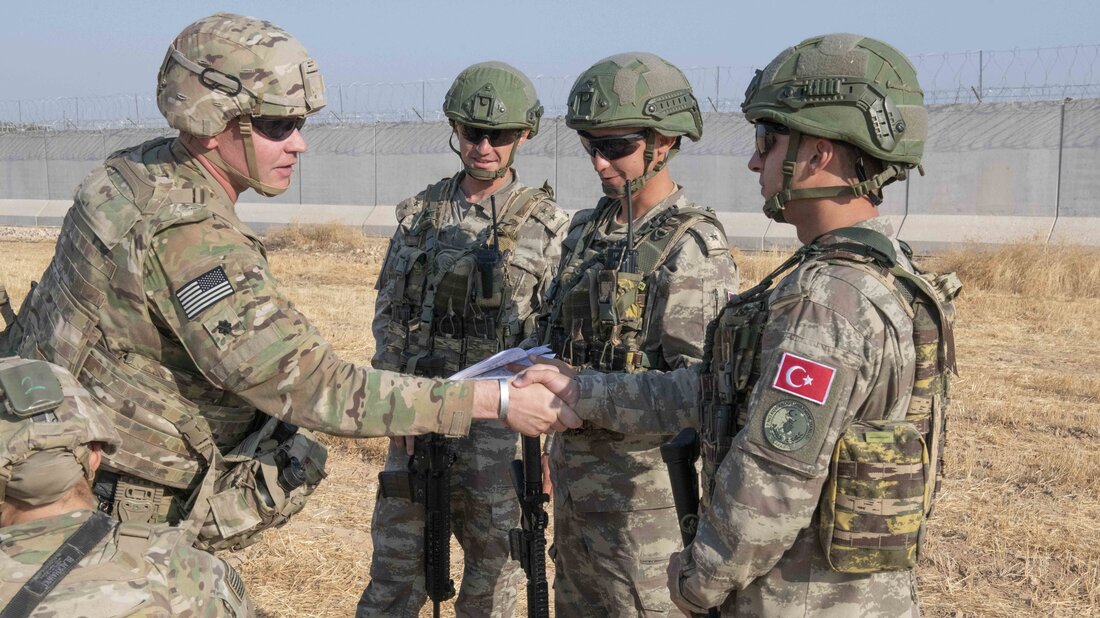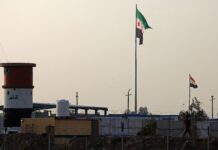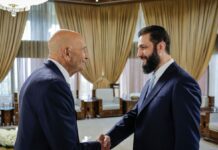
As the United States considers scaling back its military presence in Syria, Turkish and US officials are weighing the consequences for regional stability, amid concerns about the Syrian Democratic Forces (SDF) and the possibility of new Turkish ground operations. With the recent US presidential election rekindling discussions on the potential withdrawal of American troops, Turkey’s goal of establishing a “security belt” along its southern border and ongoing diplomatic talks between the two NATO allies are taking center stage.
While the US maintains approximately 900 troops in northeastern Syria, primarily supporting the SDF in its campaign against the ISIS, Turkish officials have long criticized US support for the group. Turkey objects due to the SDF’s ties to the Kurdistan Workers’ Party (PKK), a designated terrorist organization by Ankara, Washington, and other NATO members. Ankara’s latest request to Washington, conveyed during a high-level visit by US Deputy Secretary of State John Bass in September, calls for an end to US cooperation with the SDF and clearer terms regarding a US military drawdown.
According to Turkish diplomatic sources, the US signaled on Monday, November 11, that despite previous claims of not leaving Syria in the near future, it is open to cooperation with Turkey regarding troop withdrawal, though no definitive timeline has been set.
Some assessments suggest that US forces could exit Syria between 2025 and 2026, but both sides agree that any exit would necessitate close coordination. The diplomatic calculus has been further complicated by the recent victory of Donald Trump, whose views on a full withdrawal from Syria have raised both hopes and concerns in Ankara.
During Trump’s first term, his stated goal was to pull US troops from Syria, a decision he partially reversed amid pressure from military and diplomatic advisors. Trump’s ally, Robert Kennedy Jr., has indicated that a second Trump administration would likely pursue this agenda, leading to a regional reassessment of security dynamics.
Turkey sees an opportunity to press for commitments from the United States regarding the SDF and ISIS detainees held in SDF-controlled territories. An estimated 50,000 individuals linked to ISIS are detained in northeastern Syria, raising concerns over who would assume control if US forces were to withdraw.
Turkish President Erdogan, buoyed by Trump’s election victory, reiterated his country’s plans for a “security belt” on the Syrian border, underscoring Turkey’s readiness to act independently of the US if necessary. Since its advent Turkey has maintained a complicated role in the Syrian conflict, having come to blows with ISIS, Russia, Assad’s forces, and PKK-aligned Kurdish separatists. Turkey’s military presence in northern Syria already extends across areas captured in three separate incursions since 2016, with Turkish-backed Syrian factions controlling parts of Afrin, Tal Abyad, and Ras al-Ain.
On Sunday, November 10, Erdogan renewed his commitment to the security belt, pledging that the Turkish military would continue efforts to “thwart terrorist encirclement” on Turkey’s southern border. He also reaffirmed his intention to discuss the matter with Trump in a series of planned diplomatic exchanges. “We will look at the withdrawal of US forces from Syria and discuss how we will shape developments in the Middle East,” Erdogan stated.
However, Russian officials, including the Kremlin’s special envoy to Syria, Alexander Lavrentiev, have warned that any new Turkish operation in Syria could destabilize the region further. Lavrentiev emphasized that military action would heighten tensions, particularly with unresolved crises in Lebanon and Gaza impacting the wider Middle East. Russia, which operates alongside Iranian forces in support of the Assad regime, has frequently clashed with Turkey over influence in Syria.
For the United States, the situation presents a complex balancing act. A hasty US exit from Syria could weaken leverage against Iran and the Assad regime, while a prolonged presence could strain relations with Ankara. Former US Special Envoy for Syria James Jeffrey has cautioned that a US withdrawal would be a “grave mistake,” noting that it would likely strengthen Assad and Iran, which could destabilize US allies and partners, including Turkey. Despite these concerns, Jeffrey expressed optimism about renewed cooperation with Turkey under Trump, characterizing the relationship as “transactional but functional.”
As discussions continue, both Turkey and the US face critical choices about their roles in Syria’s future. Turkey’s demand for a 30 to 40-kilometer security zone along its southern border underscores its determination to neutralize the SDF, even as the US considers the long-term strategic impact of staying or leaving Syria. Observers note that the outcome of these discussions could reshape the balance of power in Syria and the broader Middle East for years to come.








